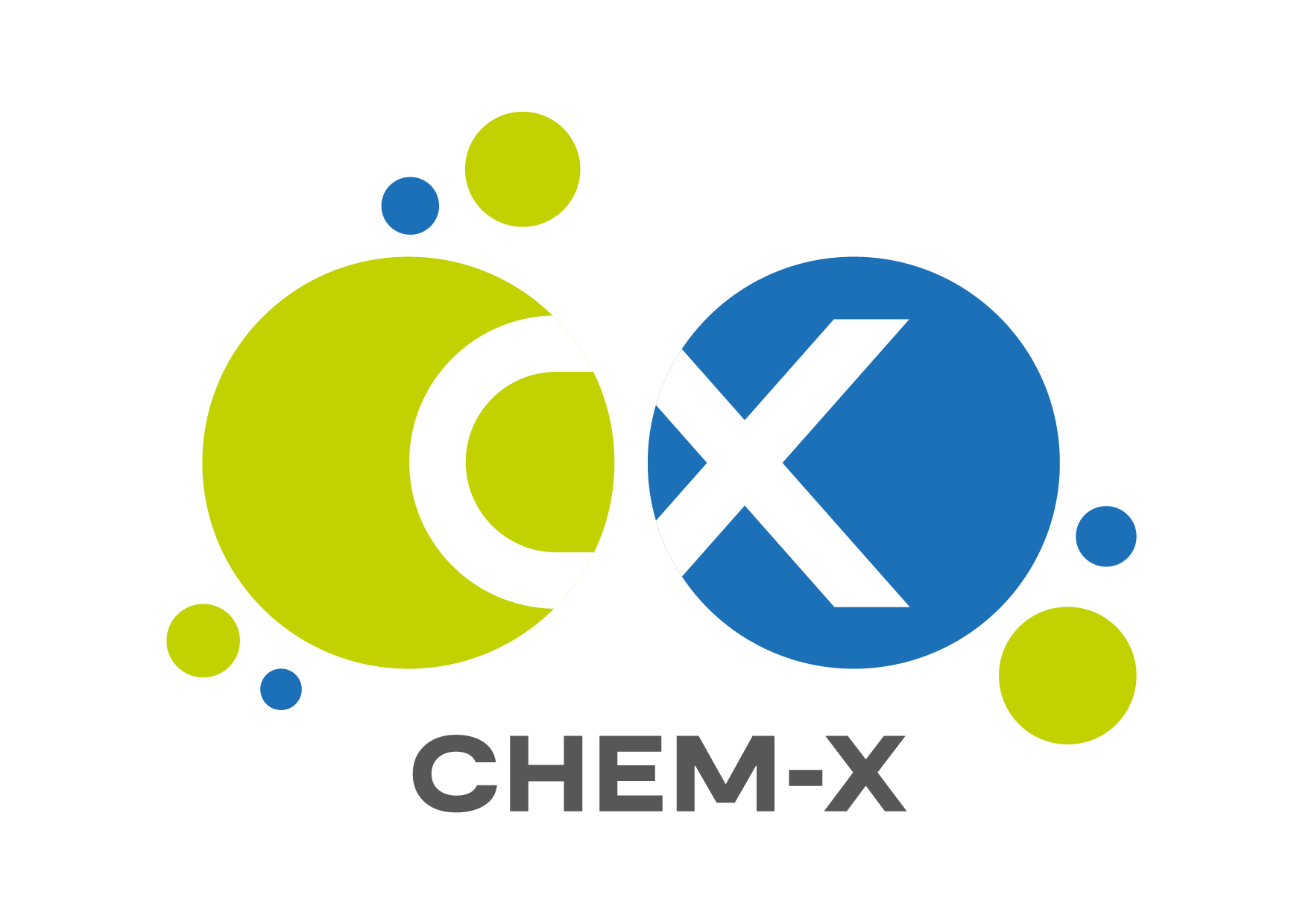Consultation
Chem-X request for feedback
Content guidelines as foundation for a
chemistry Digital Material Passport (DMP)
Background
Chem-X is the key to a transparent and circular chemical industry. With Chem-X, we want to address the need for a seamless exchange of product information in the value chain across industries. Thereby, we want to enable compliance with different regulatory requirements, support circular business models and increase competitiveness.
Within the chemical industry, we want to help companies creating a Digital Material Passport (DMP). A Digital Material Passport (DMP) captures information on chemicals which constitute a final product that is regulatory required to have a Digital Product Passport (DPP).
To lay the foundations for a chemistry DMP, we have been working on six guidelines in which we summarize our common understanding of methodological frameworks, metrics, terminology, and review existing implementations. The guidelines address key topics: business and material identity, circularity and sustainability, material declaration, and verification. The guidelines will be used alongside the information models as prerequisite to develop DMP models.
With this call, we want to invite public feedback for our initial results on these guidelines to ensure the inclusion of a wide range of perspectives. We will use this feedback to further improve and enhance the guideline.
The guidelines
The consultation comprises the following 6 guidelines, tailored for the chemical industry. Please note that the guidelines are working documents. We will continue to develop the guidelines and add further content.
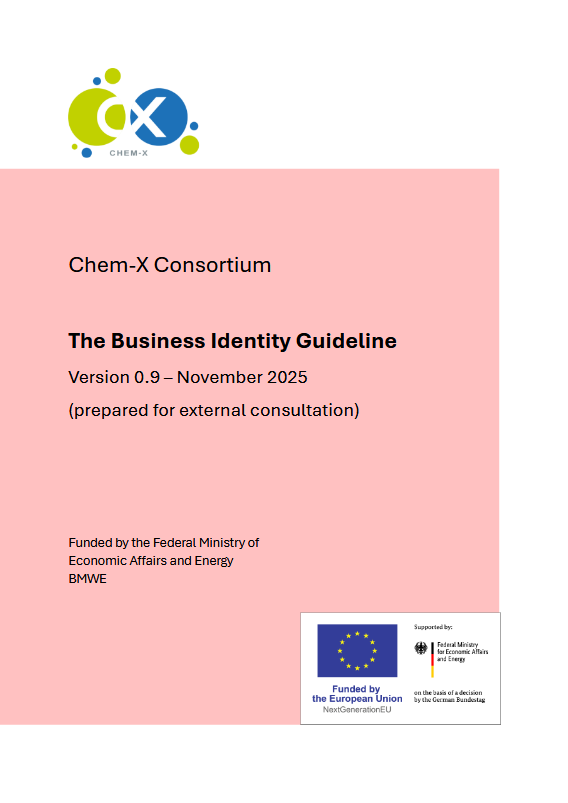
Business Identity
Provides a results-based review and critical assessment of the Business Partner Data Management (BPDM) implementations in Catena-X, Cofinity-X, and Manufacturing-X. It examines how these systems manage identity and data modeling, evaluates their compliance with open standards (e.g., W3C, ISO, Gaia-X), and explores their potential for extensibility beyond the automotive domain. Special attention is given to interoperability challenges, governance models, and data sovereignty concerns that impact multi-sector adoption.
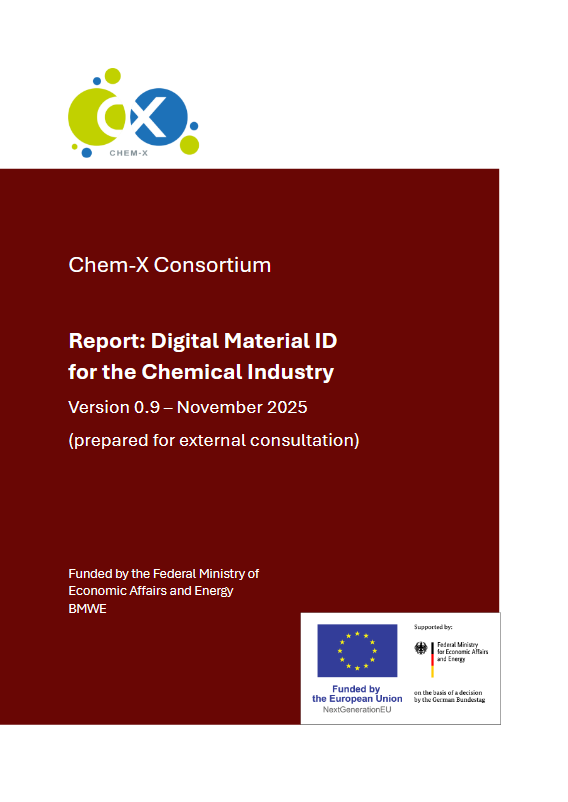
Material ID and Data Chain
Outlines the method and architecture to define and structure a digital MaterialID for chemical products. A digital MaterialID targets to identify a chemical product and, unlike known material identifiers such as CAS-Number, INCI Name, EC-Number, UFI Number, etc., provides a link from the physical product to its digital representation and its product information made available as a digital material passport (DMP) or digital product passport (DPP).
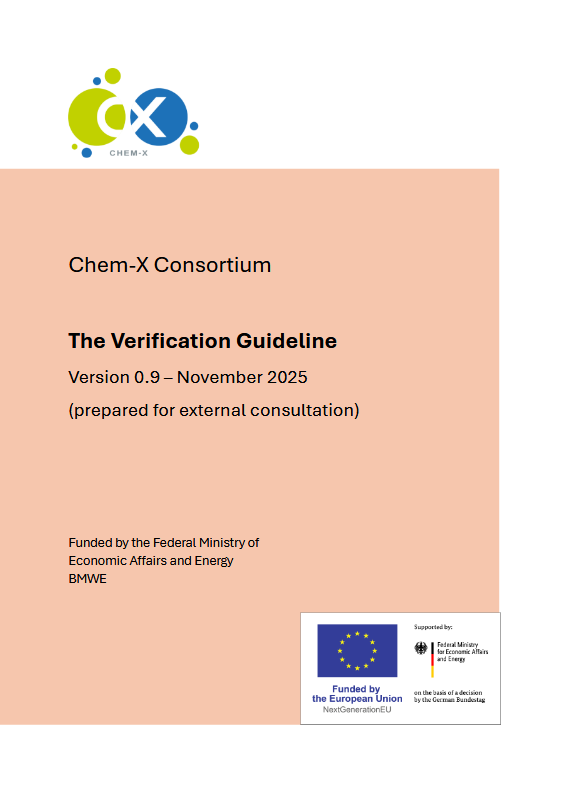
Verification
Provides a review of existing dataspace projects regarding their verification components and serves as a foundation for developing a verification concept in Chem-X project. It highlights the importance of credential-based verification, public key infrastructure, and registry services within a decentralized framework, referencing standards such as eIDAS, W3C Verifiable Credentials, and active and ongoing dataspace projects like Catena-X.

Environmental Sustainability
Provides a methodological framework for assessing the environmental impacts of chemical products. The guideline covers the following metrics:
- Product carbon footprint (TfS PCF Guideline 3.0)
- Resource use fossil
- Acidification potential
- Water use (water scarcity)
- Ozone depletion potential
- Photochemical ozone creation potential
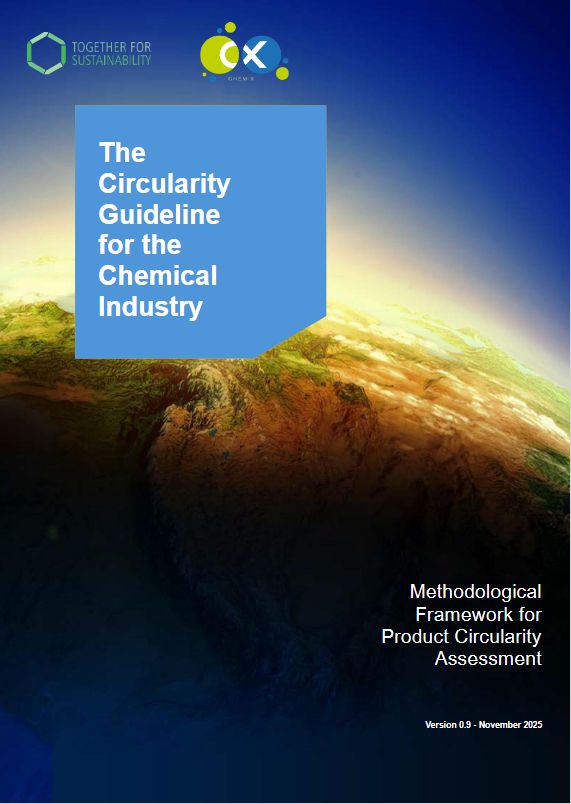
Circularity
Defines harmonized metrics for measuring circularity in chemical products. The guideline covers:
- Bio/ Renewable/ Recycled/ Reuse content metrics definitions and formulas
- Chain of custody definitions and indicators
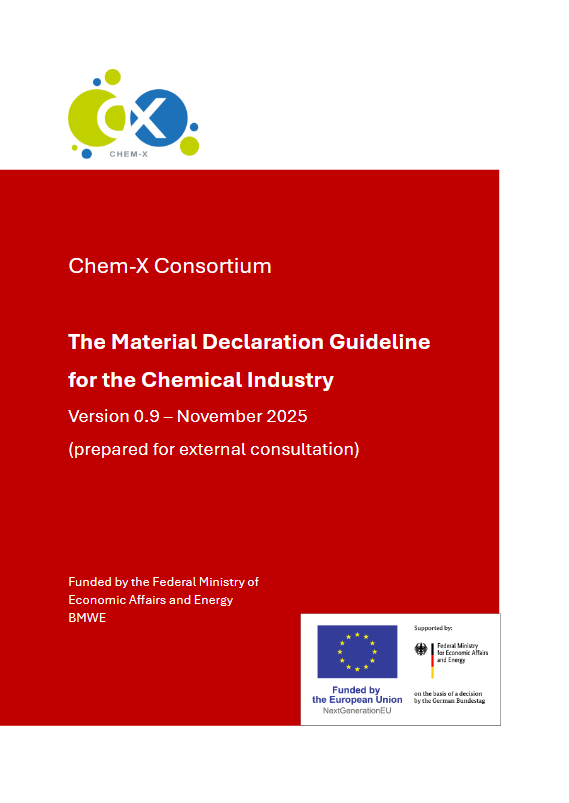
Material Declaration
Provides clear information, showing how to structure chemical material and substance information. It explains how to handle substance declarations at different levels – from general product specifications to specific production batches and individual items.
Companies can utilize this framework to share required chemical information electronically throughout their supply chains while maintaining appropriate confidentiality. The guideline also illustrates how to incorporate Safety Data Sheet information when needed as an additional set of information between supply chain partners.
Consultation process
Currently, the guidelines are working documents. Chem-X invites public feedback to ensure the inclusion of a wide range of perspectives. The broad consent collected will support future adaptations, maximizing value for all stakeholders.
Consultation period: November 11 to November 30, 2025.
How to participate:
- Review the guidelines (use DOWNLOAD links above).

- Provide your comments separately for the six guidelines using the FEEDBACK TABLES below each guideline.

- Once you have completed your feedback, please send the completed table(s) to consultation@chem-x.de
Optional: Take part in our accompanying webinar on November 12 for further information (see more information below). We will make the recording available here after the webinar.
What you should also know:
- The consultation period will remain open until November 30. Late feedback will not be considered.
- In case we are not sure how to interpret your feedback, we will reach out to you via e-mail.
- Please provide only answers that reflect your company’s point of view. We cannot consider inconsistent or contradictory feedback from one company.
- We appreciate your feedback and your contribution to a pre-competitive, publicly funded project. To avoid misunderstandings, we would like to point out that your feedback is voluntary and you cannot make any copyright claims from these contributions and/or register Intellectual property.
Chem-X webinar on the consultation
To accompany the consultation, we hosted a webinar on November 12 to provide an overview of the Chem-X project, to present details on the newly published guidelines, and to explain how to participate in the feedback.
You will learn in the webinar:
- What is the Chem-X project about?
- What has been done on the topic of sustainability and circularity
metrics as well as material declaration for the chemical industry? - How is the technical foundation of Chem-X established, specifically in terms of infrastructure and data architecture?
- How are the documents organized, and how does the consultation process work?
